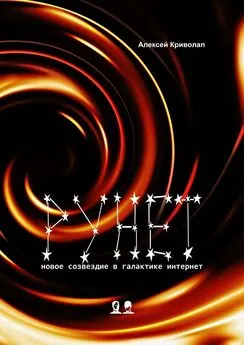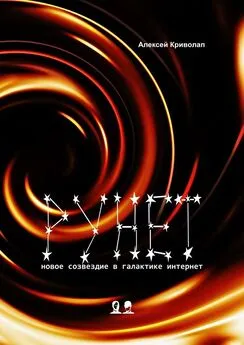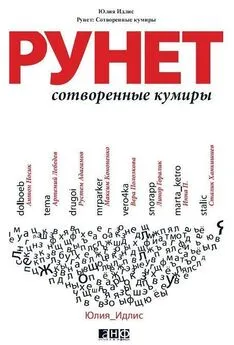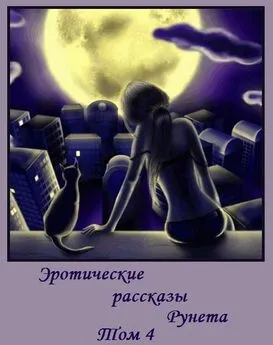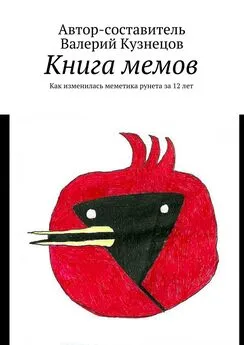Алексей Криволап - Рунет
- Название:Рунет
- Автор:
- Жанр:
- Издательство:неизвестно
- Год:2017
- ISBN:нет данных
- Рейтинг:
- Избранное:Добавить в избранное
-
Отзывы:
-
Ваша оценка:
Алексей Криволап - Рунет краткое содержание
Рунет - читать онлайн бесплатно ознакомительный отрывок
Интервал:
Закладка:
234
Бурдье П. Социальное пространство и символическая власть // Пьер Бурдье, Начала. Choses dites (Москва: Socio-Logos, 1994), 186—87, http://bourdieu.name/content/burde-nachala.
235
Бурдье П. Физическое и социальное пространства: проникновение и присвоение // Бурдье, Социология политики, 39—40.
236
Michel Foucault, «Of Other Spaces», Diacritics 16, вып. 1 (1986 г.): 22—27.
237
Там же, 24—26.
238
Там же, 27.
239
Diana Saco, Cybering democracy: public space and the Internet, Electronic mediations, v. 7 (Minneapolis: University of Minnesota Press, 2002), 211.
240
Умберто Эко, Пять эссе на темы этики (Санкт Петербург: Симпозиум, 1998).
241
Baer, «Consuming history and memory through mass media products», 495.
242
John Perry Barlow, «A Declaration of the Independence of Cyberspace», 8 февраль 1996 г., https://projects.eff.org/~barlow/Declaration-Final.html.
243
Lori B Andrews, I Know Who You Are and I Saw What You Did: Social Networks and the Death of Privacy (New York: Free Press, 2012), 189—91.
244
Appadurai, Modernity at large, 33.
245
И. И. Митин, «Комплексные характеристики Пограничья и Воображаемое в гуманитарной географии», в После империи: исследования восточноевропейского Пограничья (Вильнюс: ЕГУ, 2005), 150.
246
Emmanouil Tranos, The Geography of the Internet: Cities, Regions and Internet Infrastructure in Europe (Edward Elgar Publishing, 2013), 17.
247
Подорога В. А. Выражение и смысл: Ландшафтные миры философии: Серен Киркегор, Фридрих Ницше, Мартин Хайдеггер, Марсель Пруст, Франц Кафка (Москва: Ad Marginem, 1995), 26.
248
Александр Филиппов, «Гетеротопология родных просторов», Отечественные записки 6, вып. 7 (2002 г.), http://www.strana-oz.ru/?numid=7&article=288.
249
А. Д. Криволап, «Парад означающих: белорусский опыт визуализации Дня независимости», в Белорусский формат: невидимая реальность. Сборник научных трудов (Вильнюс: ЕГУ, 2008), 368—96.
250
James Jay Carafano, Wiki at war: conflict in a socially networked world, 1st ed (College Station: Texas A&M University Press, 2012), 180.
251
А. Д. Криволап, «Виртуализация белорусской власти в интернете», The Russian Cyberspace Journal 1, вып. 1 (2009 г.).
252
Morozov, «How Dictators Watch Us on the Web».
253
www как политическая публичная сфера // Соколова и Фурс, Постсоветская публичность: Беларусь, Украина, 109.
254
Gregory J. Walters, Human rights in an information age: a philosophical analysis (Toronto: University of Toronto Press, 2001), 196—99.
255
Jack L. Goldsmith, Who controls the Internet?: illusions of a borderless world (New York: Oxford University Press, 2006), 184.
256
Giampiero Giacomello, National governments and control of the Internet: a digital challenge (New York, NY: Routledge, 2005).
257
Alexander M. Campbell Halavais, Search Engine Society, Digital media and society series (Cambridge; Malden, MA: Polity, 2009), 191.
258
Pariser, The Filter Bubble.
259
James Everett Katz, Social consequences of Internet use: access, involvement, and interaction (Cambridge, Mass: MIT Press, 2002), 269.
260
Barney Warf, Global Geographies of the Internet, 1-е изд. (Dordrecht: Springer, 2012), 147.
261
David R. Johnson and David G. Post Law and Borders: The Rise of Law in Cyberspace // Peter Ludlow, Crypto Anarchy, Cyberstates, and Pirate Utopias (Cambridge, Mass.: MIT Press, 2001), 151.
262
Sandra Braman, Change of state: information, policy, and power (Cambridge, Mass: MIT Press, 2006), 240—41.
263
Там же, 255—56.
264
David R. Johnson and David G. Post Law and Borders: The Rise of Law in Cyberspace // Ludlow, Crypto Anarchy, Cyberstates, and Pirate Utopias, 167.
Интервал:
Закладка:
